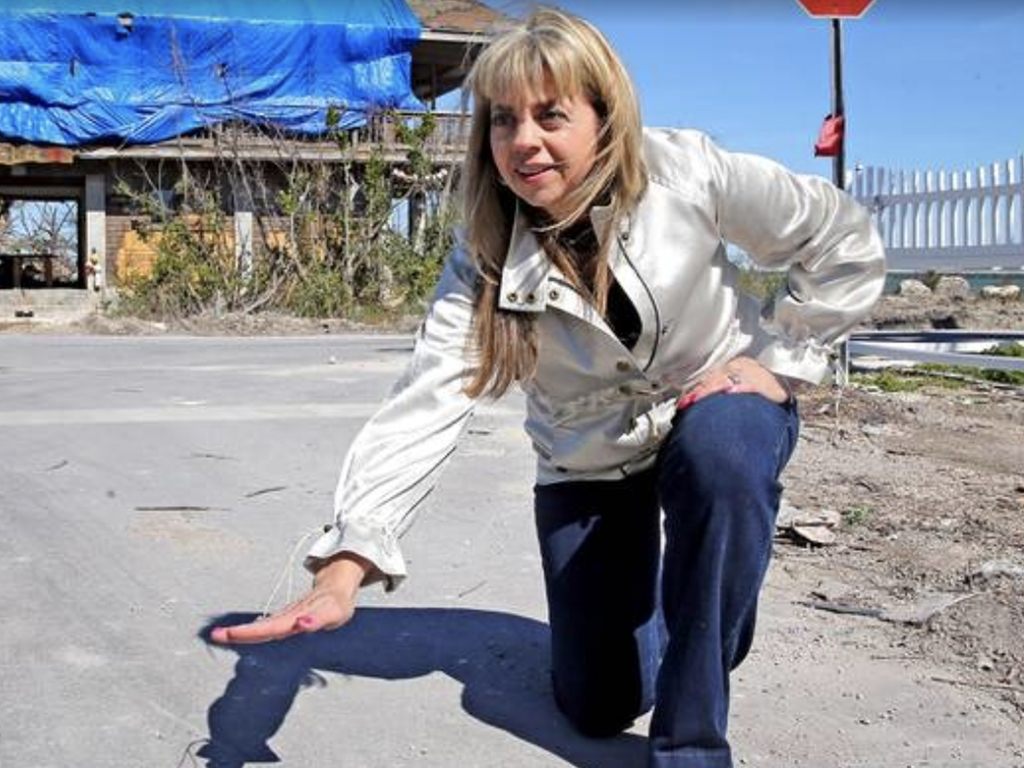Is your land at risk for sea rise?
By: Alex Harris
Is your land at risk for sea rise? More firms want to sell South Florida the answer
The usual checklist before businesses buy a piece of property includes looking at what kind of taxes they’ll have to pay, who the neighbors are and whether there is good space for parking.
In South Florida, there’s a new box some buyers may want to check: What will that parcel look like when sea levels rise?
New Silicon Valley startup Jupiter — boosted by $10 million in venture capital funds — will soon arrive on the South Florida scene to test its climate change calculating software. The product looks like a customized Google Maps screen but with options for different sea-rise scenarios rather than directions to the nearest restaurant.
The arrival of a well-funded, high-tech venture signals an emerging market for climate change data in a region that will be at ground zero for impacts. At least one homegrown consulting company is already in the business of breaking down potential climate change risks for clients.
The new Jupiter platform, called ClimateScore, comes with apps that show the effects of various symptoms of climate change. Right now, customers have access to projected flood and heat impacts but eventually the company plans on adding other perils like wildfires and drought.
The idea is that land buyers will pay for straightforward, customized information rather than trying to assess risk from a constant stream of studies on climate change and government flood maps that can be outdated or inaccurate.
“There’s a huge amount of data. It just isn’t in a form that’s designed for people making decisions about risk,” said Jupiter CEO Rich Sorkin.
His company feeds all kind of data, including elevation data, tidal gauges, satellite data and the latest peer reviewed studies, into the program to come up with personalized maps that show exactly where the water will go.
A real estate firm is already using Jupiter’s first pilot project, in Charleston, South Carolina, to check that the land they’re investing in isn’t flood prone. Before specialized tools like Jupiter, all that was available were flood plain maps and weather data, said Scott Hodgkins, the Executive Vice President of Xebec Realty.
“With climate change, all of these historical weather patterns are no longer predictive,” he said. “The historical maps aren’t really useful to us.”
His firm sees it as a tool to more clearly assess long-term risk.
“If there’s science available that gives us additional information to say ‘Oh, here’s seven different places in Greater Miami, and this one is least likely to flood in the future,’ Why wouldn’t we build there rather than somewhere else?” Hodgkins said.
Sorkin said he’s in talks with South Florida clients interested in the same sort of information.
Jupiter is a newcomer to the scene pioneered by South Florida startup Coastal Risk Consulting in 2016. The firm, co-founded by environmental lawyer Albert Slap, offers two main products — an automated service that spits out the flood and hurricane risks for a certain address based on FEMA and NOAA models and a custom report for clients who want a broader scope.
Coastal Risk has supplied information on the risk of sea level rise to a range of clients, including individual homeowners, 15 Macy’s department stores, the Aventura Mall, a luxury homebuilder and the city of Pinecrest. They also take their recommendations a step further by helping owners plan their adaptation measures, find contractors and install the products.
“We put as much time and PhD power into communicating risk as modeling,” he said.
Slap said he’s seen a steady growth in customers, including a jump after Hurricane Irma last year. Jupiter’s arrival underlines that what has been a niche market is poised to grow. Based on climate change models, businesses in South Florida and other coastal communities will face an increasing need to put a dollar figure on their vulnerability.
“Ten years ago no one would buy information on the risk of climate change because there wasn’t an awareness or a demand for it,” Sorkin said.
Now big name companies are starting to consider the implications of a rapidly warming world on their profit margins. Investors are pressuring oil and gas companies for reports on the impacts of global warming. Bond rating agency Moody’s caused a buzz when it announced late last year that ignoring the issue will hurt municipal and government credit scores, impacting taxpayers.
Sorkin said companies that don’t get with the program will face a financial penalty in the future even before floodwaters start to pool on their property.
“Traders are adept at finding mispriced risk. Anyone who has mispriced risk in a few years — it’s going to be a bloodbath,” he said.
But change, especially in South Florida’s coastal real estate dominated economy, comes slowly.
The mantra in real estate is location, location, location, said Jack McCabe, a Deerfield-based real estate analyst, and for now beachfront property is still the most expensive. Until the risk of sea level rise is reflected in the price, he doesn’t expect everyone to take it seriously.
However, he has seen some in the industry begin to pay attention and seek out data on their vulnerabilities, especially after Irma.
“This information is going to become more valuable and more in demand as time goes on,” McCabe said. “Developers are just starting to understand that they’re facing a lot of risk in the future.”
Right now those developers are few and far between in a market powered by condominium developers and speculators, who aren’t looking for long-term investments.
Peter Zalewski of CondoVultures.com said he doesn’t see tools like Jupiter or Coastal Risk making much of an impact on that industry anytime soon.
“They think they’re going to be able to sell before the seas rise,” he said. “Ultimately, greed will overcome any regard for climate change in South Florida.”
Read the story at Miamiherald.com


